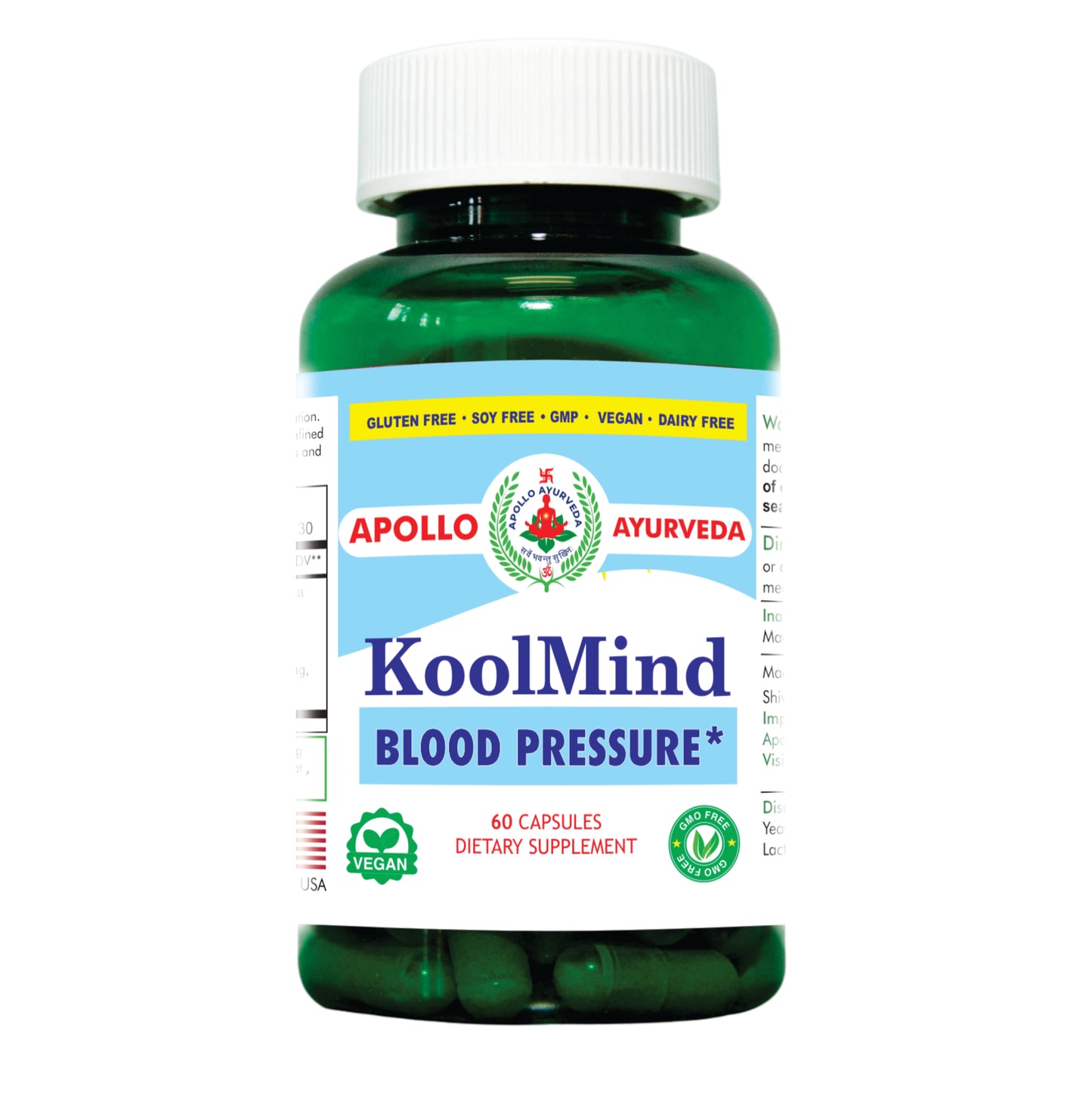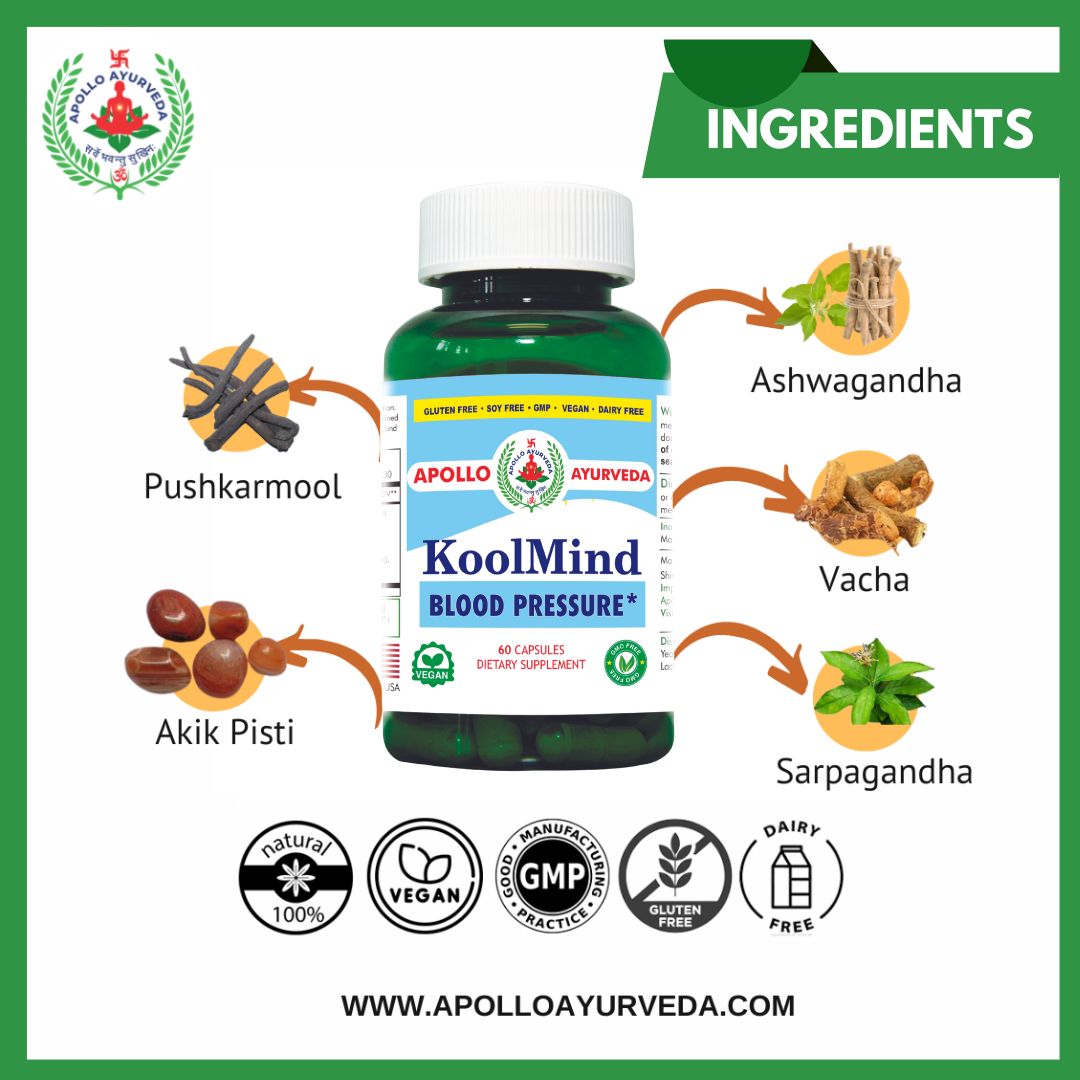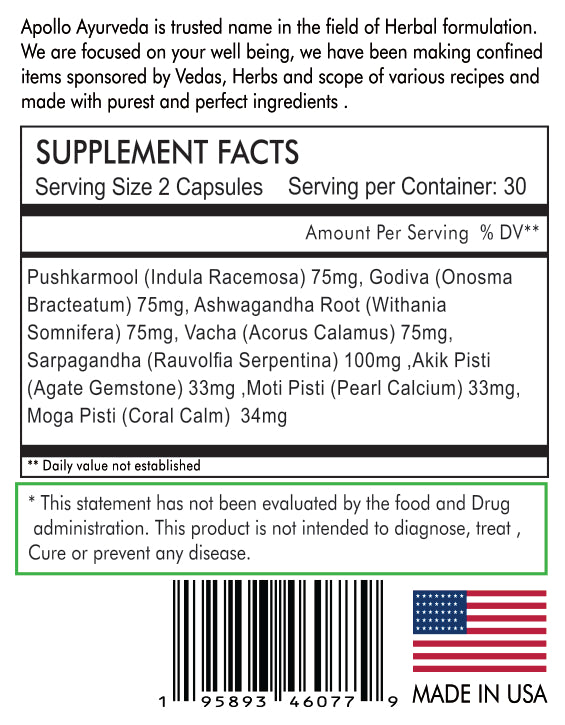ASHWAGANDHA ROOT
Share
ASHWAGANDHA Root, commonly known as Indian Ginseng, is an ancient medicinal herb. It is a small shrub that produces yellow flowers and red fruit, but it is the root that is most commonly used for its medicinal properties. The botanical name for ASHWAGANDHA is Withania Somnifera.
The botanical name for Ashwagandha Root is Withania Somnifera.
MORE ABOUT ASHWAGANDHA ROOT
- Dosha of Ashwagandha Root
- Traditional Uses of Ashwagandha Root
- Active Constituents in Ashwagandha Root
- Benefits of Ashwagandha Root
- Scientific research about Ashwagandha Root
- Precautions or Side Effects of Ashwagandha Root
- How anyone can incorporate the Ashwagandha Root into their routine?
Dosha of Ashwagandha Root
ASHWAGANDHA Root is classified as a Rasayana herb in Ayurvedic medicine, which means it is used to promote overall health and longevity. It is believed to have a neutral dosha, which means it can be used by individuals with any body type. However, it is important to note that the dosha of one herb is separate and when it is mixed with other herbs, it can have different effects. It is ideal to reach out to an Ayurvedic expert before opting for herbal remedies
Traditional Uses of Ashwagandha Root
ASHWAGANDHA Root has been a popular medical remedy since ancient times. Some of its traditional uses include:
- Promoting physical and mental stamina
- Improving the immune system
- Improving sleep quality
- Supporting healthy digestion
- Enhancing Male and Female reproductive health
Benefits of Ashwagandha Root
ASHWAGANDHA Root has a variety of potential health benefits, including:
Blood Pressure Support
ASHWAGANDHA Root is known to be beneficial for blood pressure support. High blood pressure, or hypertension, is a common condition that can increase the risk of cardiovascular disease, stroke, and other health complications.
Promotes Calmness and Relaxation
This Ayurvedic medicine promotes calmness and relaxation. It is thought to possess adaptogenic properties. This could assist the body in adjusting to stressors and support overall equilibrium and well-being.
Enhances Mental Clarity and Focus
ASHWAGANDHA Root may help enhance mental clarity and focus by reducing stress and anxiety levels, which can impair cognitive function. It may have the potential as a natural treatment for enhancing mental clarity and focus and may promote overall brain health.
Enhances Athletic Performance
ASHWAGANDHA Root has been shown to enhance athletic performance in several ways. First, it may help increase endurance and stamina by improving oxygen utilization and reducing fatigue during exercise. It might also aid in boosting muscle mass and strength. The herb is also credited with speeding up muscle recovery and minimizing post-exercise muscle damage.
Reduces Cortisol Levels
Chronic elevation of cortisol levels can have negative effects on health, including an increased risk of obesity, diabetes, and cardiovascular disease. ASHWAGANDHA Root has been shown to have cortisol-lowering effects, making it potentially beneficial for individuals with chronic stress or stress-related disorders.
Scientific research about Ashwagandha Root
There is a growing body of scientific research that supports the traditional uses of ASHWAGANDHA Root. Some of the recent studies include:
A study published in the Journal of Dietary Supplements investigated the effects of ASHWAGANDHA Root extract on cognitive function in healthy adults. The study found that ASHWAGANDHA Root extract significantly improved reaction time, cognitive processing speed, and cognitive performance compared to the placebo group. The researchers concluded that ASHWAGANDHA Root extract may have the potential as a cognitive enhancer.
The Journal of Clinical Psychopharmacology investigated the effects of the ASHWAGANDHA Root extract on anxiety and stress levels in individuals with a history of chronic stress. The study found that ASHWAGANDHA Root extract significantly reduced anxiety and stress levels compared to the placebo group. The researchers concluded that ASHWAGANDHA Root extract may have the potential to naturally treat stress-related disorders.
Precautions or Side Effects of Ashwagandha Root
While ASHWAGANDHA Root has been found to be safe when used as per instructions, there are some precautions and possible impacts to be aware of. It may have potential adverse effects on fetal development. Additionally, individuals with autoimmune diseases should consult with a healthcare professional before using ASHWAGANDHA Root, as it may stimulate the immune system. Potential side effects may include gastrointestinal upset, nausea, and headache.
How anyone can incorporate the Ashwagandha Root into their routine?
ASHWAGANDHA Root can be incorporated into a daily routine in a variety of ways, including:
- Taking it as a supplement: ASHWAGANDHA Root is available in supplement form, including capsules, tablets, and powders.
- Adding it to food and drinks: ASHWAGANDHA Root powder can be added to smoothies, teas, and other foods and beverages.
- Using it topically: ASHWAGANDHA Root oil can be applied topically to the skin for its anti-inflammatory and antioxidant properties.
It is important to follow the recommended dosage instructions and to consult a healthcare professional before adding ASHWAGANDHA Root to your daily routine, especially if you are taking medication or have any pre-existing medical conditions.
Conclusion
ASHWAGANDHA Root is a traditional Ayurvedic herb with a variety of potential health benefits. While more research is needed to fully understand its mechanisms of action, studies have shown promising results in areas such as blood pressure support, stress reduction, cognitive function, and emotional balance.








